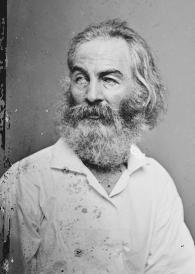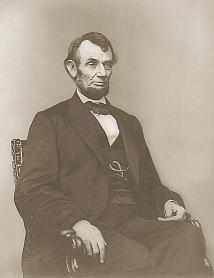Walt Whitman – A Poet Of The Civil War
Walt Whitman’s father Walter, was a house builder, and his mother’s name was Louisa. The Whitman family had nine children with Walt being the second son. The Whitmans lived in Brooklyn and Long Island in the 1820s and 1830s.
Walt Whitman’s brother George Washington Whitman, fought for the Union during the Civil War and was injured at Fredericksburg in 1862. Walt went to Virginia in search of his hospitalized brother and was relieved to discover that George’s wounds were not serious. The wounded, the conditions, and the plentiful misery of a Civil War hospital led Walt Whitman to volunteer at age forty-two to be a nursing aid. He served for over three years in this capacity.Whitman wrote two volumes of poetry about the Civil War: Drum Taps (1865) and Sequel to Drum Taps (1866), after witnessing first-hand the suffering, bravery, wastefulness, heroism, and tragedy of war while working in hospitals during the Civil War.
Observations Of Poet Walt Whitman In 1865
’’Unnamed, unknown, remain and still remain the bravest soldiers. Our manliest, our boys, our hardy darlings: no picture gives them. Likely, the typical one of them (standing, no doubt, for hundreds, thousands) crawls aside to some bush-clump or ferny tuft on receiving his death-shot; there, sheltering a little while, soaking roots, grass, and soil with red blood; the battle advances, retreats, flits from the scene, sweeps by; and there, haply with pain and suffering…the last lethargy winds like a serpent round him; the eyes glaze in death;…and there, at last the Bravest Soldier, crumbles in Mother Earth, unburied and unknown.’’
Poems About Abraham Lincoln
Walt Whitman is famous for two poem elegies he wrote about President Abraham Lincoln after Lincoln was assassinated, these poems are: ’’O Captain! My Captain!’’ and ’’When Lilacs Last in Dooryard Bloom’d.’’ Not even the most casual student of the Civil War should ignore these two Walt Whitman poems. Below you will find the first of these two poems.
O Captain! My Captain!
by Walt Whitman
The port is near, the bells I hear, the people all exulting,
While follow eyes the steady keel, the vessel grim and daring.
But O heart! heart! heart!
O the bleeding drops of red!
Where on the deck my Captain lies,
Fallen cold and dead.
II.
For you bouquets and ribboned wreaths, for you the shores a-crowding:
For you they call, the swaying mass, their eager faces turning.
Here Captain! dear father!
This arm beneath your head;
It is some dream that on the deck,
You’ve fallen cold and dead.
III.
My Captain does not answer, his lips are pale and still;
My father does not feel my arm, he has no pulse nor will;
The ship is anchor’d safe and sound, its voyage closed and done;
From fearful trip the victor ship comes in with object won!
Exult, O shores, and ring, O bells!
But I with mournful tread,
Walk the deck my Captain lies,
Fallen cold and dead.

